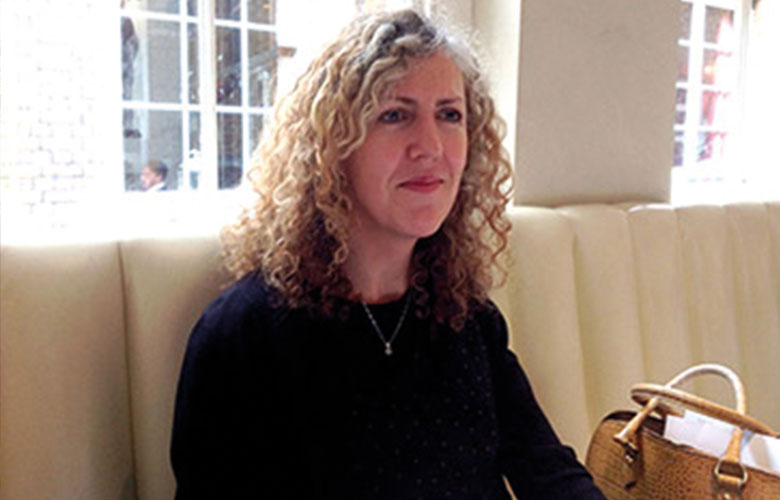What made you decide to become a planner?
I think principally because I was interested in cities and how they work. I knew I didn’t want to do just one thing and I am a bit more of an applied person so I think it was a combination of design, geography, economics, they are all things I was interested in and planning brought them together. Who or what have been the greatest influences in your career? It’s slightly clichéd but I think probably my parents because they are very encouraging. I come from a family with a very strong work ethic but they are also very supportive and encouraged us to do whatever we wanted and whatever made us happy. They’ve always been really enthusiastic about what I’ve wanted to be doing because they know it makes me happy.
What is the project you are most proud of?
I suppose there are a few but you tend to think of the more recent ones because they’re at the forefront of your mind. A very strong recent one was acting on a recent win for Crossrail on Oxford Street and especially as we were against a very strong headwind of people saying that we didn’t really have scope to negotiate the section 106 on affordable housing. We took the view that there was a case to be made and I feel personally very proud that we’ve saved a public body an awful lot of money in negotiating a very keen deal, not to the council’s detriment. It doesn’t really matter whether it was a private sector client or a public sector client, it’s about there having to be checks and balances. Negotiating so that a client doesn’t have to pay any more than we think is reasonable makes me feel that I have done my job properly. I think that if it is a public sector client then it does make you feel probably even happier that the public purse isn’t being unduly compromised. Looking further back, I think it’s probably the previous work that I have done on Wood Wharf, a project which has involved essentially the extension of Canary wharf. We worked on it for eight or nine years and ultimately got planning approval, so I think for sheer tenacity it is probably that one. I think with planning it’s not always about short term gains, in fact it hardly ever is – it is about more strategic projects and actually being able to see that you need to spend the amount of time on something of that scale for it to be realised.
What attracted you to GVA?
I have been there seven years, and when I decided to leave my previous company I didn’t consider anyone else actually, I didn’t even have a CV! I happened to know a couple of people working at GVA and I liked them both – so I thought that was a good indicator. I was also very much aware of their profile and presence and they were always prominent in Planning Magazine surveys and so I always knew they were big. It wasn’t just about them being big but I knew they were involved in a full range of planning work. I think what I liked about it, is it had the good aspects of a partnership but also had aspects of a corporate, in terms of being well run – a combination of the paternalism with good management. Then when I met Steven who heads up our team and who is our Chairman, I knew I could work with him and that was really important. I thought firstly, he’s a nice guy but secondly, he’s a good businessman and leads from the front. I have to respect the people I work with and I have to believe they have similar values and so I think it was those key things really.
What do you look for in a prospective candidate?
I think obviously you want someone to be enthusiastic about what they’re doing and they have to be genuinely motivated. I look for people who have a positivity about them, I think with planning you do need to be positive and that’s not about promoting bad development that’s just about being able to get around challenges, being able to get through a lot of milestones, hurdles, barriers and being able to navigate that course. So I think you have to have a natural personality to actually want to achieve, to problem solve, you need a lot of energy, tenacity and good humour for that. You also need to be quite sharp, it’s not necessarily about being academic but I think you have to be reasonably intellectually agile. So it’s principally about someone having a lot of those skills but you can’t bottle it and there isn’t a formula! It’s about a whole range of things, but people have to be true to themselves. If people have got those key attributes with the ability, a general desire to achieve and a reasonably flexible personality (because in consultancy your priority lists are changing on a daily if not hourly basis so you need to be able to juggle) – then they’ll do well!
What advice would you give to more junior planners and specifically as an active member of Women In Property, what advice would you give to female planners who are starting their careers?
Whether you’re male or female I think it’s to get involved and to be true to yourself – don’t try to adopt someone else’s personality. People can be role models and people certainly can be inspirational, but I think it’s important to not try and take on other characters and traits. I think for women in the property environment it’s opened up and it depends on where you are exactly and what you’re doing but I would say get out there and use your natural networks – that can be from university friends or other sorts of contacts you may have. I think Women In Property offers another dimension and it’s certainly a useful network. I feel it’s actually grown in its reputation and it is taken more seriously by any credible organisation – it’s not just a case of talking about handbags and shoes, but if that comes into the conversation then there’s nothing wrong with it! You also get to meet lots of women involved in many different sectors in property whether they are architects, lawyers, developers, consultants. It’s a very safe networking environment in that it’s very inclusive and welcoming so I would definitely recommend it to young female planners. Generally, I think having women in teams adds a greater dimension than if it was either one sex or the other, mixed environments are generally healthier environments.
Aside from planning and property what other interests do you have?
I love travelling and have done lots of it. I am quite happy to take weekend breaks whenever I can though – you’ll often find me scuttling out the office on a Friday night taking a trip to Genoa. I’m still not averse to the odd backpacking trip either but equally I can do high end – I’m adaptable! I also love good food and wine – which go hand in hand with the travelling and I’m a particular fan of wine tasting. Obviously architecture is an interest but that’s a bit of a busman’s holiday but it’s nice to see good architecture. I am a bit of a culture buff, well culture lover anyway – I do like going to lots of the exhibitions and art galleries, I love the Royal Academy whether it’s a David Hockney or something else. I also enjoy going to the Barbican and want to see the Bauhaus exhibition. I’m not particularly active in terms of being sporty but I do like sport. I am a Fulham fan so I am often shouting abuse on the terraces at Craven cottage! I like proper walking – going for a few hours walk out on the hills and maybe doing that for a few days, or on the weekends, but I tend to be an armchair sport watcher mostly.





